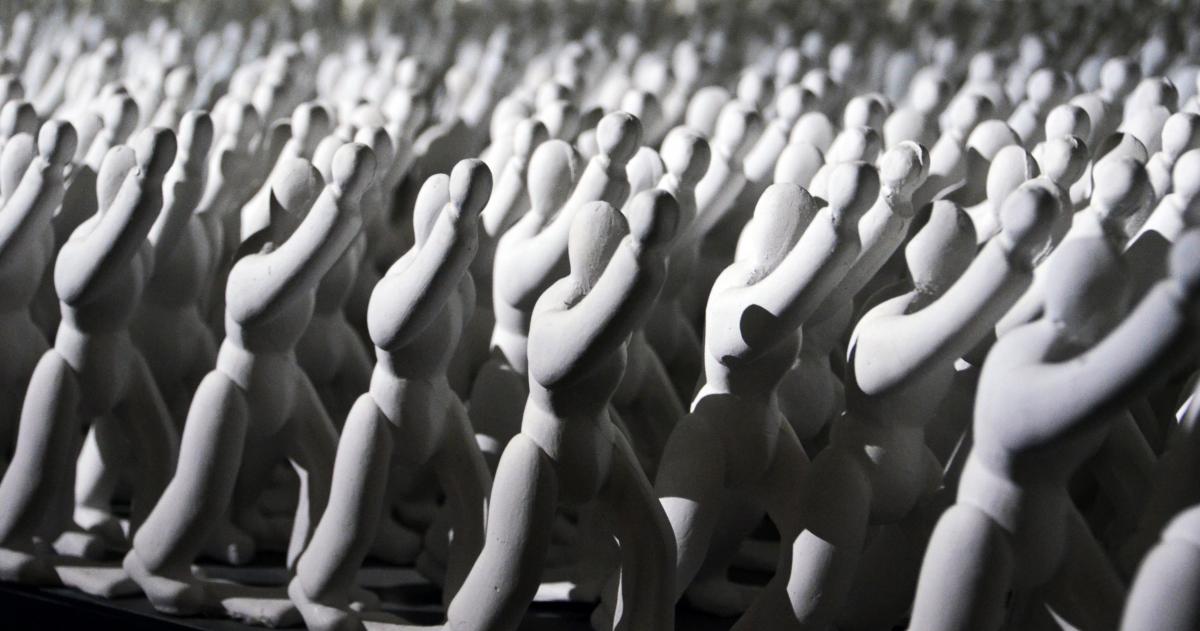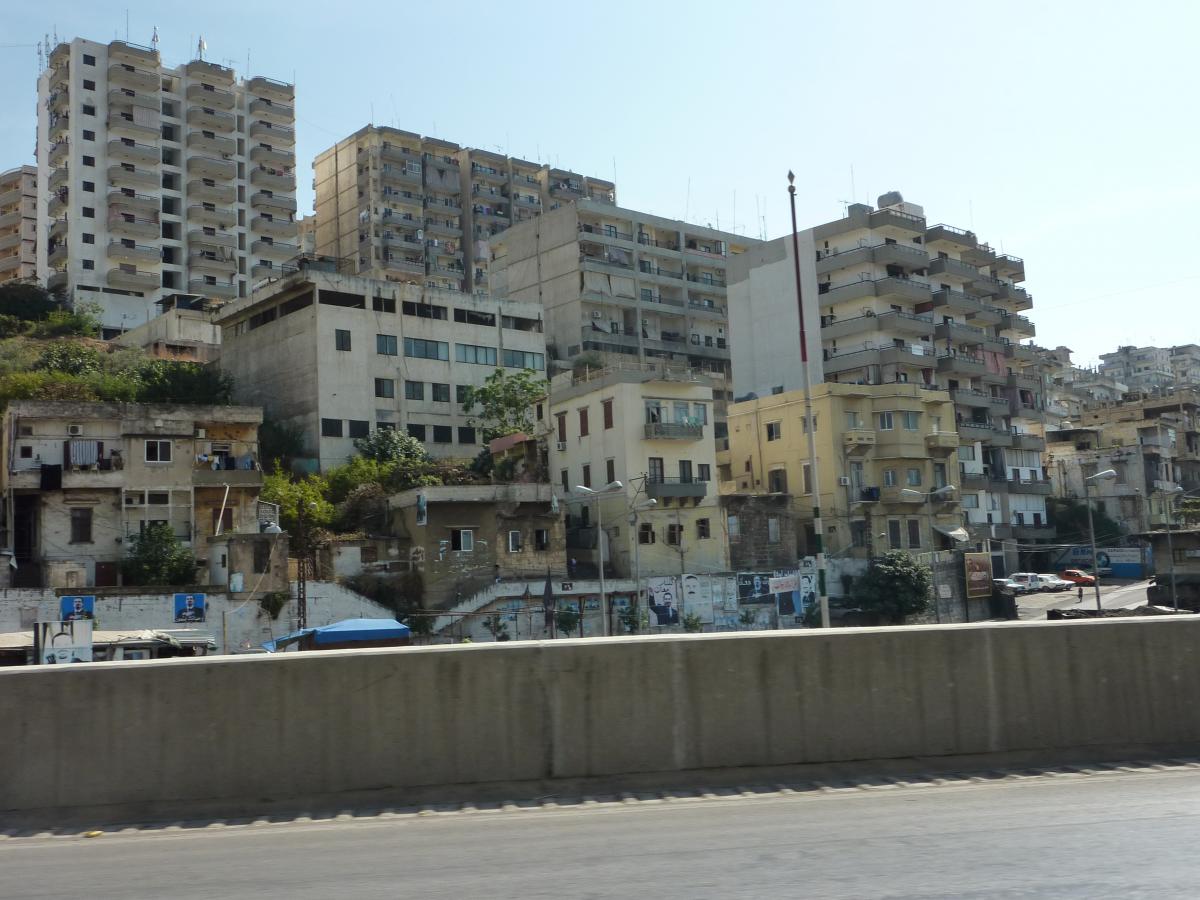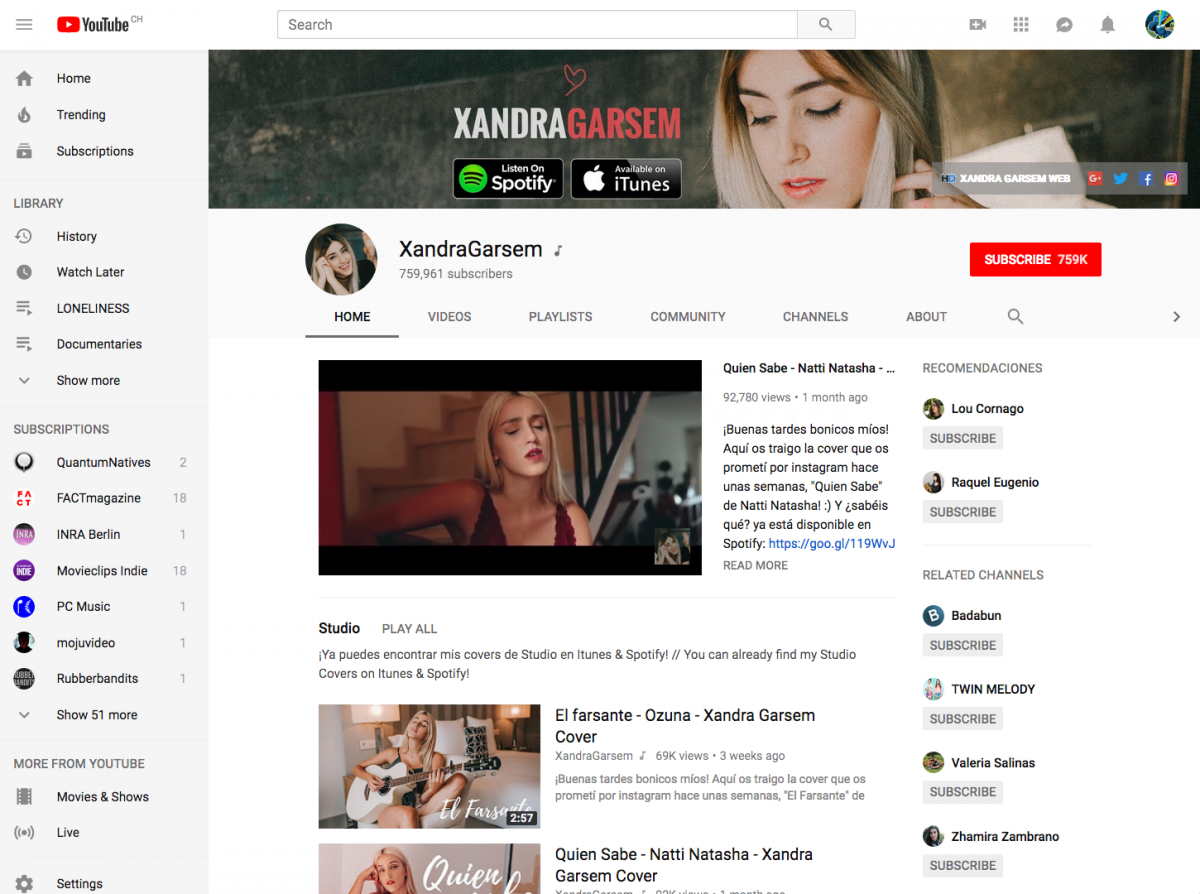For centuries dabke was a local tradition in Syria, but in the late 1990s, it has become more and more urban. Thereby, the popular dance music was reimaginated and globalized. Under the name «new wave dabke» special stylistic idoms have become noticeable – but instead of the capability to merge into free mixtures, they create new social boundaries. From the Norient book Out of the Absurdity of Life (see and order here).
Dabke is a centuries-old dance music tradition of the Levant that features a signature stomp (in Arabic, dabke translates as «to stomp the ground with your foot») and tabla drum. It is a groove music with persistent downbeats and mechanized rhythms that can be traced regionally from Kurdish Iraq to the eastern Mediterranean coast. Dabke is also a genre of musiqa shaʿbiyya (popular dance music) that flows between contexts. Friends and families dance dabke at social gatherings like those filmed by streetwise Arab-American youth in the viral YouTube clip «Teach Me How To Debke» – A dabke-flash mob in Beirut’s Hariri International Airport. Nos Tefaha, a protest rock band working from the occupied Golan Heights, breaks into dabke melodies and rhythms between politically charged verses that deliver the message of non-violent resistance to the Syrian regime (Farraj 2012).
Dabke is arrestingly local. Someone from the Hawran region, for instance, may not understand a singer (known as a mutrib among Arab speakers) from Lattakia due to linguistic differences between provincial dialects. Likewise, discrepancies among footwork figures and rhythmic patterns tend to be ascribed to distinct village traditions or ethnic heritage. For many, dabke symbolizes that which is nostalgically grounded in rural ways of life. Whether and how these cultures have been shaped by centuries of migration and trade still remains to be studied, nonetheless, loyalties to the ethnic and rural origins of dabke practices remain entrenched to today.
Ali El Dik and the Feud with Mohammed Iskander
In the late 1990s, these differences became subsumed into a translocal urban music genre that industry insiders nicknamed «New Wave Dabke». Voicing the Arab street, a new generation of singers appealed to audiences in ways that crossed linguistic and ethnic boundaries. Hipster magnet Omar Souleyman is among these. According to sources, the new wave of dabke may be traced to a battle between two popular dabke singers in Syria, Ali El Dik and Mohammed Iskander. Since his early career, Ali El Dik has been highly regarded in coastal towns for his «one-man show» performances in the sahaliyya (coastal) dialect. In 1997, El Dik became involved in a feud with an older singer, Mohammed Iskander, over intellectual property rights regarding the music video, «Samra Husawde». Whereas El Dik claimed that Iskander stole the song from him, Iskander claimed he adapted the lyrics for those who do not speak in the coastal dialect. He justified this adaptation by claiming that the song was «folkloric» and thereby accessible to all artists. In return, El Dik titled his next chart after his pseudonym «Aloush» as a means to secure his music against what he deemed theft. Along with stoking fiery battles between personalities, «Aloush» was decried as a «cheap video clip» by Syrian cultural elite who regarded Ali El Dik as a threat to the integrity of cultural traditions.
Crossing Borders
In 2000, empresario Abu Hussein (his moniker among industry insiders) launched the Beirut-based production house Lourd Sound which specialized in musiqa sha’biyya, or low-budget Arab pop music. Abu Hussein had previously secured leverage in Beirut's music industry in the late 1970s through his involvement as a producer for superstar Dalida. His interest in musiqa shaʿbiyya developed two decades later when Zeina Saqar, a bank employee at the time, approached him with a cassette tape and entreated him to produce her songs. He obliged and the first success was followed up by seven additional album projects. Dabke star Rabieh El Asmar similarly approached Abu Hussein for a contract that resulted in ten albums before El Asmar left Lourd Sound for entertainment giant Rotana. A&R networks of Lourd Sound straddled Lebanon and Syria and consisted of professional singers from the Syrian coast along with Shia communities in south Lebanon and the Beqaa Valley, including Zeina Saqar and an older female singer Zeina Hamia. Through Lourd Sound and other industry players, singers contracted with godfather-like promoters who cultivated their raw talent and pushed them through the competitive landscape of nightclubs, radio stations, and satellite music videos. Singers traveled across the Syrian-Lebanese border in ways that may correlate with migration patterns of surplus Syrian labor in Lebanon and related socio-political issues (Chalcraft 2009).
As we sat in his air-conditioned office in the New Raouche district of Beirut, Abu Hussein shared his role in the emergence of «New Wave Dabke»:
I discovered Ali El Dik five years ago, when a Syrian company offered his track «Aloush» for very little. I bought airtime for it on Radio Strike [in Lebanon], who limited the run to five times daily due its lowbrow status. They also asked for more money because they considered the artist to be relatively obscure. So I gave them more. But when I listened to Radio Strike, I heard it play more than forty times. I called to inquire and they replied that there was a high volume of caller requests. After one week, even the corporate giant Rotana aired the video clip of «Aloush». Since then, we released his second, third, and fourth albums and sell his CDs continuously.
Though his reputation swings controversially from lowbrow artist to political insider, Ali El Dik is today’s leading Syrian dabke singer. His commercial success may be attributed to his strategic manipulation of the satellite music video at a critical juncture in the development of Arab media (Armbrust 2005, Frishkopf 2010). Moreover, his career drives a new generation of dabke singers whose popularity moves across ethnic or linguistic borders, such as New Wave Dabke stars Naim El Sheikh, Saria Sawas, and Walid Sarkis. Being able to deliver a variety of regional dialects for diverse audiences is vital for the success of Naim El Sheikh’s career. Based in the coastal city Tartous, Saria Sawas sings in a heavy Bedouin dialect that provokes contestations over her ethnic identity, which fans tend to identify as either Iraqi or from the border region Deir El Zour. Walid Sarkis, of Christian upbringing, reached out to Lebanese Shia consumers with his album titled «Abu El Sabtain Haidar», a nickname associated with the prophet Imam Ali. Generally, eulogies to religious and political leaders help to strategically delimit target markets, such as supporters of Hasan Nasrallah and Bashar Assad. Since the Arab Spring, the vilification of political leaders has likewise become a strategy that builds solidarity among anti-regime protesters (Silverstein 2012).
Marking National Differences
New Wave Dabke producers not only broaden appeal by blurring sectarian and linguistic boundaries but also through aesthetic strategies of music production. Producers and musicians depend on the production and circulation of samples to add digital effects, such as the mizmar (reed wind instrument) or zaghareet (vocal ululations). Samples may be deployed strategically as stylistic idioms that represent a place or project a certain worldview. For instance, recording engineer Walid Baghdadi of StudioFlash in Beirut samples hiphop beats to globalize his dance tracks. He also uses different instruments to mark national differences: «Lebanese dabke needs ney (end-blown bamboo flute) in the beginning while some Syrian-Lebanese dabkat (plural of dabke) are better with a buzuq (long-necked lute) introduction». Likewise, Abu Hussein prefers the «electric guitar for Iraqi dabke». He often hires musicians for studio sessions and mixes these with recordings taken at live performance events. He remarked that whereas «ney and violin are more befitting for 'ataba and muwwal (improvised vocal forms that precede dabke sections), sometimes we really need to add live darbuka (goblet drum) just to excite people to go and dance». Their aesthetic strategies suggest how the process of producing of New Wave Dabke reinforces conceptual links between geographic region, stylistic idioms, and musical form at the same time that musical material is reconfigured and reimagined.
Conclusion
Is stardom and commercial success in musiqa shaʿbiyya dependent on the ability to cross borders – aesthetic, linguistic, ethnic or national? New Wave Dabke producers and singers have arguably shaped a new cultural space by adopting outsider dabke practices and expanding musical networks across lines of difference. Yet they accomplish this by producing alterity, that is, by constructing social boundaries between ethnic and sectarian communities or cultural distinctions between rural-urban and Lebanese-Syrian-Iraqi lifestyles. The proliferation of New Wave Dabke is therefore situated within the social and cultural differences that it affirms and acknowledges. More broadly, the dynamism of musiqa shaʿbiyya is evident in how a sense of locality persists and endures across shifting contexts and historical moments.
Translation of Cited Songs
Walid Sarkis: «'Ataba Abu al-Sabtain»
Ouf ouf
Father of the two Husseins, (Imam Ali)
Wisest of the wise
The one who clearly was intentioned
to be the succssor of Allah
Mohammad has chosen you and if it were not
for the betrayal you would have been the one (repeat)
He was born in the Kaaba with great insight
that breaks through walls
This is a Miracle whose proof to people
is the existence of the light of mercy (repeat)
He believed in our prophet at a younger age
than others who believed in the old idols (repeat)
He was so pure that only Zahra knew of the purity of Haidar
Son of the Aamri, he was greater than the Infidelity
and took care of the worst crime and with the blade of Zo Alfikar,
our god freed Ali and dealt the unbelievers a defeat (repeat)
And in the parties or clans made a point of honor
and guided the people to the straight path
and made the sun late and delayed time
and the sun told him I would die for you (repeat)
And Marhab faked his happiness with drums
and trumpets but in his heart had an evil idea
Abu sabtain, helper of good,
killed him and was better than him in courage and will (repeat)
And in Khaibar the evil wind rose and whispered
with its Jews who were not honest and with one hit from his han
he shook Khaibar’s gates whose people are now in hell (repeat)
Al Hassan, brother of Hussein,
who knew more of his dad’s good deeds and straight path with the roll of his head,
the throne shook but not more than that with his blood
he gave the Shiites the bounty from the battle (repeat)
Abi Sabtain, Abi Sabtain the purity returned
Mohammad said you are welcome my friend and companion,
heaven is a pathway for us,
whosoever believed in us and called for our help
would enter the paradise or grace of god without invitation (repeat)
Ouf ouf….yaa Abu Hadi,
(Nasrallah) you are always guide to the path (repeat)
At the point of contact the fighter is martyred (repeat)
Tell the Arabs that neutrality is the biggest shame,
see how badly my people have been tortured by the fire of the enemy
and how on the enemies stepped on our gardens (repeat)
Ya Nasrallah I saw your light appear to your south,
which I worship it worshipfully (repeat)
Hizballah made the price of glory high,
is men are like lions on the hills and valleys
Witness, only we have Hezbollah men,
only its men are roses in the gardens of martyrdom (repeat)
Ali al-Deek: «Alush»
(Singer greets audience)
From beginning to end, it’s the human state
I thought of you, man, just had a little sleep
Alush, Alush, Ali, Ali
Yes, Yes, dear, I hear you
Alush, It’s morning already
The harvesters are ahead of us
Bring the pick and shovel and also
a small sack for food (repeat twice)
Hey hey (calls to others)
Alush, Ali, Ali come on, wake up,
Come on, wake up, please
Damn the laziness
Get up and hurry up please.
I’ve been trying to wake you up for hours (repeat twice)
The rooster has cried all over the valley
Alush, it’s morning already
The harvesters are ahead of us
Bring the pick and shovel and also a small sack for food
Leave me sleep a little,
Open your eyes
We are poor
Eastern sunrise
Your mom fed the chickens and
she went to take care of the sheep (repeat)
She went to take care of something
and your uncle Abu Shadi
Alush, It’s morning already
The harvesters are ahead of us
Bring the pick and shovel and also
a small sack for food (repeat)
Yalla yalla
From next to the water well I got
two pounds of tomato (repeat)
It was a good thing that made her happy.
Alush, It’s morning already
The harvesters are ahead of us
Bring the pick and shovel and also
a small sack for food (repeat twice)



